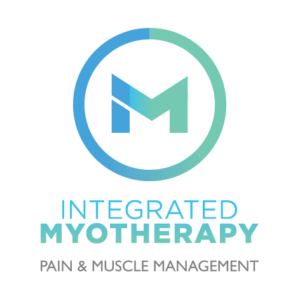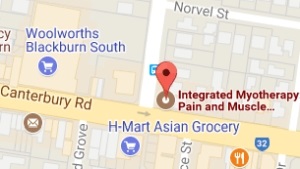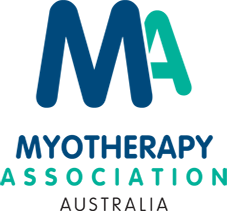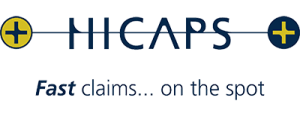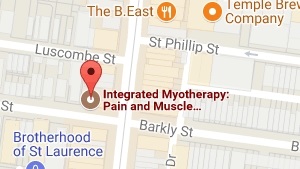Common Conditions
When it comes to injuries, we know the list is quite extensive but here are some conditions we commonly see and treat at Integrated Myotherapy.
- Headache and Migraines
Did you know that daily headaches and migraines are often caused by referred pain from elsewhere in the body?
From our experience, we often see patients who experience headaches caused by trigger points in the shoulder muscles, which infers pain up the side of the neck and head, that in turn provokes frequent headaches!
Using myotherapy to deactivate the trigger points and muscle tension around the shoulders and neck, we often see an improvement in headaches and migraines.
- Muscle Soreness
Muscles soreness is a natural effect after exercise meaning that your muscles have benefited from the hard workout. Most people will experience muscle soreness after a high intensity workout or after starting a new training program.
Myotherapy techniques can alleviate tension caused by muscle soreness. For regular athletes and sport players, myotherapy can incorporate into your pre-work out or pre-game warm ups to continually ensure a full range of joint motion to reduce the risk of injury.
- Sport Injuries
With Integrated Myotherapy’s holistic approach, we often see sport injuries for treatment, strengthening and injury prevention. Our range of myotherapy techniques including remedial massage, dry needling, MET and soft tissue treatments, are effective for the broad nature of sport injuries. We commonly treat sporting pain and injury in elbows, shoulders, lower back and knees.
- Back Pain
Back pain can be debilitating and it can happen at any time. Some causes for back pain are slipped discs (Disc Herniation) and compression of the nerves in the lower back (Sciatica). Clients that we often see for back pain are office workers who sit down for long periods of time.
Slipped discs can also happen due to degeneration that naturally happens to the body in older age and during actions such as bending over to lift things.
The manual nature of myotherapy makes it very effective for treating minor to severe back pain, using a variety of techniques such as soft tissue, dry needling, spinal mobilisation and exercise prescription.
- Elbow Pain
Elbow pain comes in two forms, “tennis elbow” which is the outside of your elbow, and “golfer’s elbow” that affects the inside of your elbow.
Generally, repetitive motions and constant use of the hands and arms cause tennis or golfer’s elbow. For example, frequent use of a computer mouse can cause inflammation of these tendons.
The myotherapy technique of Joint Mobilisation is used to take the pressure off sensitive nerves or tissue, increase range of motion, restore blood flow and reduce muscle tension around the elbow.
- Knee Pain
Knee pain is mostly associated to sport injuries, among sports such as netball, cycling, basketball and football. Knee pain can happen when there’s abnormal traction of the patella (kneecap) or weakened muscles surrounding the patella.
At Integrated Myotherapy, we take a holistic approach to treating knee pain by loosening up tight muscles surround the patella, patella traction correction and strengthening exercises.
- Ankle Injuries
Ankle injuries almost exclusively occur on the outside ankle (Lateral Ankle Sprain). It can occur as a result of sudden twisting or rolling of the foot. Ankle sprains can also happen in contact or non contact situations, such as running on uneven ground.
Myotherapy treats ankle injuries by increasing the range of motion, rehabilitation through exercise that includes strengthening and proprioception (regaining balance).
- Shoulder Pain
Shoulder pain is a broad category of injury. We most often see and treat shoulder pain caused by tears in the tendons of the rotator cuff.
Rotator cuff tears can happen with heavy loading, for example a fall or lifting a heavy object. Another prevalent cause for rotator cuff injury is through repeated micro trauma, which happens over several weeks or even years of repetitive movement.
Myotherapy techniques for shoulder pain includes soft tissue treatment to relieve tension on surrounding muscle, joint mobilisation to increase range of motion, rehabilitation exercises and muscle strengthening.
- Tension and stress
A huge amount of stress is held in your shoulders! Stress can manifest itself physically through shoulder and muscle tension.
The treatment of soft tissue, cupping or remedial massage is effective at getting blood circulation back to those muscles to relieve the physical symptoms of stress. Myotherapy dry needling deactivates trigger knots to help and correct posture.

